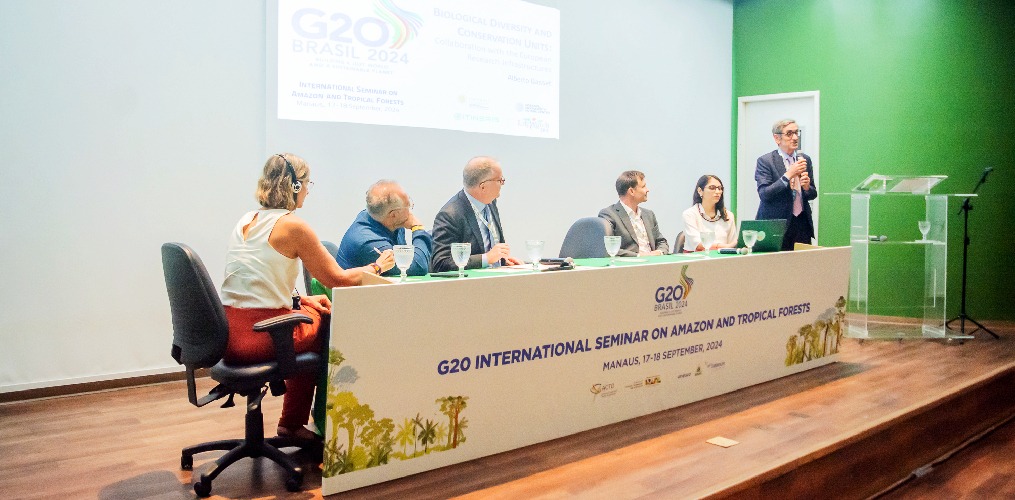G20 – Biological Diversity and Conservation Units: Collaboration with the EU Research Infrastructures
Home | Senza categoria | G20 – Biological Diversity and Conservation Units: Collaboration with the EU Research Infrastructures

The G20 Brazil 2024 took place in Manaus on September 17 and 18.
Upon invitation from the Ministry of the University and Research of Italy (MUR), Alberto Basset, Director of LifeWatch ERIC Service Centre and Full Professor of Ecology at the University of Salento, joined the panel dedicated to Biological Diversity, Conservation Units and Biosphere Reserves.
This panel, coordinated by Joe Miller from the Global Biodiversity Information Facility (GBIF), focused on promoting collaboration in scientific research, implementing conservation programs, exchanging data and technologies, and setting up environmental management policies. Alberto Basset’s talk specifically addressed the role of EU research infrastructures in fostering scientific collaboration and the key role of research and innovation to cope with global environmental challenges and build a sustainable future for the Amazon region and beyond.
During his intervention, Professor Basset emphasised the critical role of research infrastructures in stimulating innovation and addressing grand societal challenges, fostering openness, excellence and collaboration.
He highlighted how LifeWatch ERIC’s Virtual Labs and Virtual Research Environments contribute to the co-creation of knowledge, which directly supports the wider dissemination of technologies to both the productive sector and society as a whole.
The G20 serves as a vital multilateral platform for nations to collaborate on advancing science and technology in the Amazon region.
The primary focus is on addressing global challenges such as biodiversity loss and the increase in greenhouse gas emissions, improving the quality of life for the Amazonian population, boosting the local economy, and promoting inclusive and sustainable development.
International cooperation in research and innovation plays a crucial role in tackling these issues, as well as defining a model for the sustainable development of the Amazonian region, combating deforestation, mitigating climate change and adapting to its inevitable consequences.
As the current president of G20, Brazil is prioritising strong joint efforts in three key areas:
- the promotion of sustainable development, over unsustainable global growth;
- social inclusion as one step to combat poverty;
- reforming global governance.
Additionally, these sustainability actions rely heavily on the generation of new knowledge, and the definition of tools for the dissemination of technologies to both businesses and society at large.
These topics align closely with the priorities of LifeWatch ERIC, the European e-Science infrastructure for biodiversity and ecosystem research, which together with other European Research infrastructures, provide the scientific community with essential resources and services to carry out research in specialised fields.